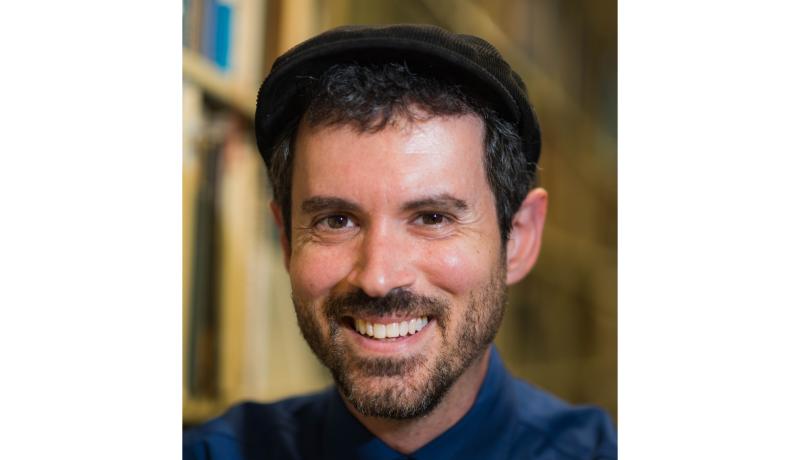DU Welcomes Joshua Furman, First Jeanne Abrams Endowed Director of the Rocky Mountain Jewish Historical Society

Joshua Furman’s journey to historic Jewish conservation began with a lecture on, of all things, potatoes.
In a European history class at Northwestern University, Furman was struck by his professor’s story of the impact of the lowly root vegetable.
“He gave a lecture about the potato, and how the potato changed the course of human civilization, because it allowed humans to be able to settle down and cultivate crops and not have to be constantly ‘hunter-gathering,’ and I went, ‘Whoa, that's what I want to do. I want to be a history professor,’” Furman recalls.
The San Antonio native is the University of Denver’s first Jeanne Abrams Endowed Director of the Rocky Mountain Jewish Historical Society (RMJHS).
And while Furman’s passion for Jewish history began as an undergrad in the Windy City, it quickly ramped up in Houston at Rice University, where he was associate director of the Program in Jewish Studies. There, Furman faced a task of mammoth proportions: salvaging decades of Jewish materials from the destruction caused by Hurricane Harvey in 2017.
“The floodwaters really devastated the whole city,” Furman says. “But, in particular, it was hard on Houston's Jewish community—a number of the synagogues and Jewish community buildings flooded. And at that time, there was no repository, no archival institution that was in place to be able to do the emergency recovery work of going into these flooded buildings and pulling out scrapbooks and photo albums and documents and things like that.”
He took it upon himself to ensure the recovery and continued survival of those scrapbooks, photo albums and documents, founding the Houston Jewish History Archive at Rice.
Furman, who has his PhD in modern Jewish history from the University of Maryland, says he used to banter with his father, a medical doctor, about the differences in their respective doctoral degrees—there’s “no such thing” as a historical emergency, he used to joke. But, as it turns out, he was wrong.
“The task of preserving the history of a community—of a neighborhood—is actually quite urgent in the case of Houston, because of natural disaster and climate change,” Furman explains. “But even absent those factors, change is so constant. Memory is fleeting.”
Furman is following in the footsteps of Jeanne Abrams, who lent her name to the title of Furman’s new position. Abrams worked for DU for more than 40 years as a history professor, director of the Beck Archives and director of the RMJHS, housed within the University’s Center for Judaic Studies. Abrams retired from the University in early 2024.
“I'm literally following a legend,” Furman says of Abrams. “[She] created such an incredible foundation, both in terms of the collections that are in the Beck Archives and the way that those collections are accessed by students here DU, to scholars working on Jewish history, Colorado history, et cetera. It really is going to be a tough act to follow. But I'm excited by the challenge.”
Furman’s aspirations for his time at DU include modernizing the University’s collections and expand RMJHS’ digital footprint.
“I'm used to the challenge of creating something out of nothing,” he says. “Here, the challenge and the exciting opportunity is to take on something where the foundation is really strong, and to move it into the 21st century and make it both appealing and accessible for younger generations.”
Another exciting aspect of his new position, Furman says, is the chance to highlight the breadth of influence that the Jewish people have had on the Mountain West.
“Jews contributed, as Jeanne has shown, significantly to Denver and Colorado in terms of its politics, its culture, its economy, its philanthropic landscape, its medical landscape, creating National Jewish Hospital and the Jewish Consumptive Relief Society,” he says.
Furman says he wants to give students the opportunity to interact with Jewish history in a multitude of ways.
“I took this job to transform Denver into a major intellectual hub for the study of the American Jewish experience,” he says. “That’s what I've come here to do. So we'll be bringing scholars to Denver to interact with our students and faculty and community members; we’ll be hosting conferences and symposia on issues related to the Jewish experience in Colorado and the West; and hopefully leading the conversation on the various issues that are front and center in terms of American Jewish history in our current home.”


